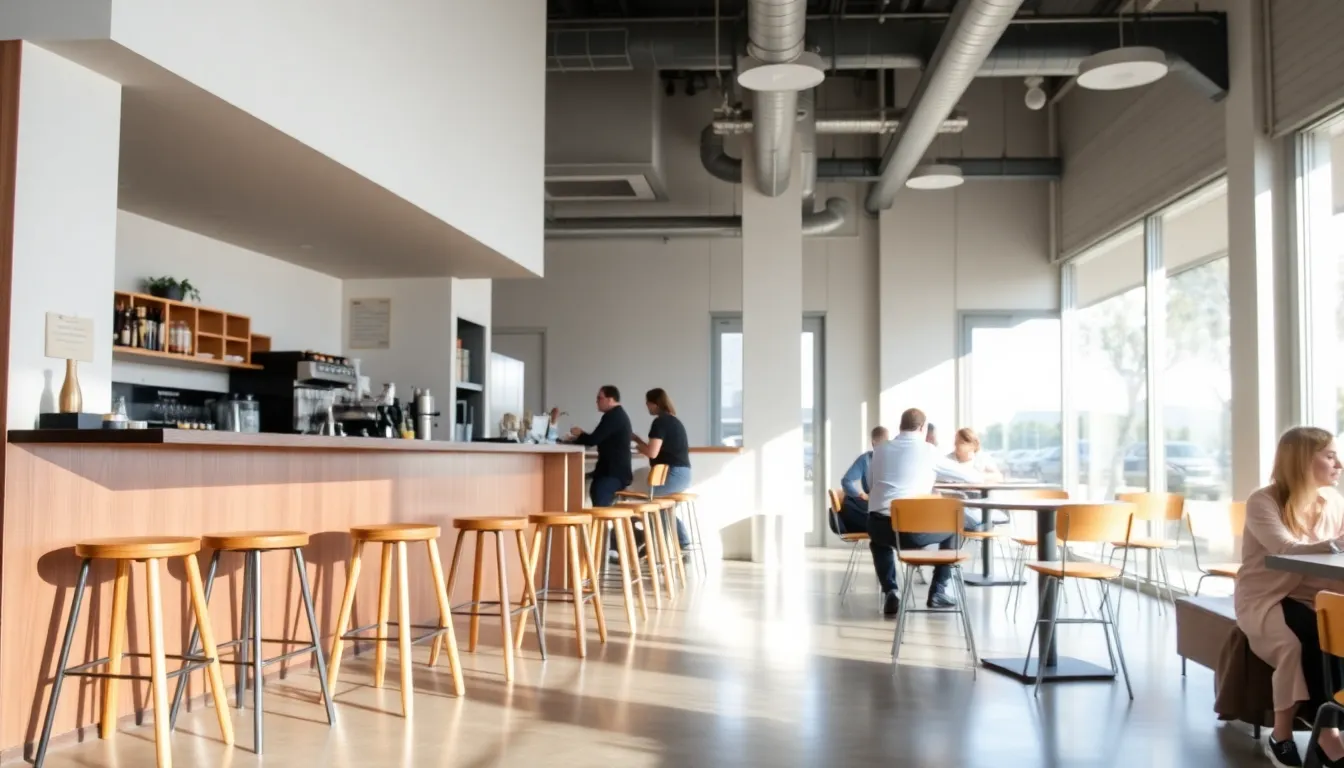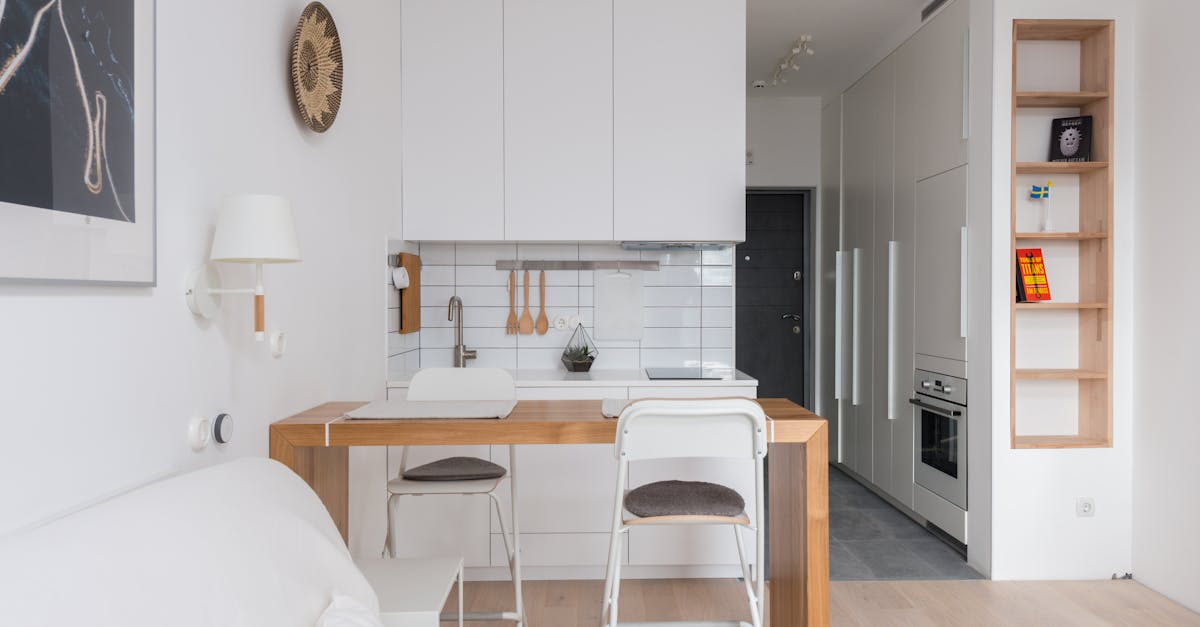Small stools are practical, space-saving furniture found throughout Queensland cafés, restaurants, and homes, offering flexible seating solutions for tight spaces and fluctuating customer numbers. Typically ranging between 45cm and 60cm in height, these compact, backless seats are available in stackable, folding, and fixed-base designs using materials such as powder-coated steel, timber, and polypropylene for varying durability and weather resistance. When selecting appropriate small stools, consider the usage environment, required features like stackability, aesthetic compatibility with existing décor, and weight capacity to ensure commercial-grade reliability. Regular maintenance including daily cleaning and weekly damage inspections ensures longevity in busy hospitality settings, whilst their versatility extends to residential use as side tables, plant stands, and step assists. Suppliers like Cafe Solutions provide diverse ranges tailored for Australian businesses, focusing on practicality and durability to meet the demanding requirements of commercial venues.
Key Takeaways
- Small stools offer space-saving, flexible seating solutions ideal for both bustling Queensland cafés and compact home areas.
- Choosing the right small stool involves considering usage environment, durability, features like stackability, and aesthetic appeal to suit your venue or home.
- Materials such as powder-coated steel, timber, and polypropylene provide varying levels of durability, comfort, and weather resistance for small stools.
- Regular maintenance, including cleaning and damage checks, ensures small stools remain safe and long-lasting in busy hospitality settings.
- Small stools are multifunctional, doubling as side tables, plant stands, and step assists, making them valuable in both commercial and residential spaces.
- Cafe Solutions supplies a diverse range of small stools tailored for Australian businesses, with options focused on practicality, design, and commercial-grade reliability.
Understanding Small Stools

Small stools are compact, backless seats usually lower in height than a standard bar or dining stool. Typically ranging between 45 cm and 60 cm high, these stools are ideal for informal seating and multi-use environments. In cafés and restaurants, small stools accommodate extra guests, fit under tables or counters, and stack or store without taking up valuable floor area.
In hospitality, small stools serve as quick perches for customers or staff, temporary display stands, or even footrests. Their size makes them extremely versatile, an important factor for Queensland cafés facing fluctuating patron traffic or limited indoor/outdoor space.
Types of Small Stools
Small stools come in several forms to meet different interior and functional requirements:
- Stackable Stools: These are designed to nest on top of each other, making them the preferred option for venues that need to frequently re-arrange or store seating, like fast-paced cafés in Brisbane and the Gold Coast.
- Folding Stools: Quick to set up and easy to tuck away, folding stools suit pop-up cafes, food trucks, or events where storage is tight.
- Fixed Base Stools: With a sturdy frame and non-collapsible design, these provide reliable seating for high-use areas, such as waiting rooms or alfresco dining spots.
- Adjustable-Height Stools: While less common for low-profile seating, some small stools allow users to change the height for extra flexibility, useful in multi-purpose hospitality venues or home offices.
Cafe Solutions offers an extensive range of these stool types, covering powder-coated steel frames, timber-topped options, and compact poly models made for busy Australian businesses.
Key Benefits of Using Small Stools
Why do so many cafés and restaurants opt for small stools either as their main seating or as a backup option?
- Space Efficiency: Small stools fit into areas standard chairs and large stools can’t, making the most of limited dining floors.
- Flexible Seating: They allow for quick reconfiguration of furniture layouts when customer numbers change abruptly, a common scenario for Queensland eateries during peak season.
- Cost-Effectiveness: Typically, small stools are less expensive than large chairs or armchairs. Businesses can stock up without overspending.
- Ease of Maintenance: Lightweight and often resistant to spills or stains, small stools are easy to move, wipe, and maintain, supporting the fast pace of hospitality environments.
- Universal Appeal: Their neutral designs suit both contemporary cafés and traditional dining spaces, catering to a wide client base.
Materials and Design Features
The choice of material impacts not just the look but the functionality and durability of a small stool. Here’s what’s common in modern Australian hospitality:
- Steel Stools: Powder-coated or stainless steel stools offer superior strength and often stack neatly. They’re highly favoured by Café Solutions for outdoor or high-traffic dining areas.
- Timber Stools: Timber adds warmth and traditional charm. Hardwoods like ash or beech deliver longevity, ideal for upmarket or heritage venues wanting a welcoming feel.
- Polypropylene or Plastic: Poly stools are lightweight, weather-resistant, and affordable, ideal for outdoor patios in Queensland’s subtropical climate.
- Upholstered Stools: While rarer in the “small” size, upholstered tops bring added comfort for boutique settings or waiting areas.
Key functional features include non-slip feet (for tile or polished concrete floors), easy-wipe surfaces, and stackability. Many stools from Cafe Solutions are designed with these aspects in mind, ensuring suitability for Australian commercial use.
How to Choose the Right Small Stool
Selecting the right stool is about matching function, durability, and design to your business or home needs. Consider the following:
- Usage Environment: Will stools be indoors, outdoors, or both? Steel and polypropylene excel outdoors, while timber is typically reserved for interiors.
- Required Features: Stackable stools are ideal for venues regularly rearranging layouts. For permanent seating, fixed-base offers more comfort and stability.
- Aesthetic Fit: Match stool colour and finish with your venue’s existing décor and branding. Neutral tones work well for versatility.
- Weight Capacity: Always check the manufacturer’s specifications. Cafe Solutions clearly lists load ratings to comply with commercial standards in Australia.
- Budget: Invest in stools that strike a balance between price and durability, this pays off in lower replacement rates over time.
Hospitality owners should also factor in delivery and warranty terms. Cafe Solutions, for example, offers bulk pricing and reliable support for Queensland businesses.
Caring for and Maintaining Small Stools
Good care ensures small stools last many years even though frequent use. Here are essential maintenance tips:
- Regular Cleaning: Wipe stools daily with a damp cloth and mild detergent. For timber, avoid soaking, moisture can cause warping or cracks.
- Inspect for Damage: Check welds, fasteners, and joints weekly in commercial venues, especially with stackable metal stools that see heavy movement.
- Store Appropriately: When not in use, stack stools in dry, sheltered spots away from harsh weather. Poly or powder-coated stools are more resilient but still benefit from protection.
- Follow Manufacturer Instructions: Adhering to guidance from suppliers like Cafe Solutions guarantees that warranties remain valid and ensures maximum stool lifespan.
Routine care is especially vital in hospitality spaces, where health and safety audits are common and damaged stools can lead to liability issues.
Creative Uses for Small Stools in the Home
Outside hospitality, small stools are rapidly growing in popularity within homes for their utility and understated charm. A few creative uses include:
- Side Tables: A timber or steel stool holds coffee mugs, books, or lamps next to couches or beds.
- Plant Stands: Improve indoor plants, especially in bright corners or verandas.
- Step Assistance: Robust stools help reach high shelves in kitchens or wardrobes (always use stools rated for this purpose).
- Children’s Rooms: Colourful, low-profile stools are safe and convenient for playrooms or bedrooms.
- Entryways: Provide a quick seat for tying shoes or setting down bags.
Because small stools occupy so little space and come in dozens of finishes, they fit naturally with most interior styles. Polypropylene stools, in particular, make practical, wipe-clean additions to busy family spaces.
Frequently Asked Questions About Small Stools
What defines a small stool compared to regular stools?
A small stool is typically backless, compact, and lower in height—usually between 45cm and 60cm—making it ideal for informal seating, tight spaces, or as extra seating in hospitality and home environments.
What are the main benefits of using small stools in cafes and restaurants?
Small stools offer space efficiency, flexibility in seating arrangements, affordability, and easy maintenance. They are lightweight and stackable, making them suitable for venues with high foot traffic and limited floor space, such as cafes and restaurants.
How do you choose the right small stool for your space?
Consider where the small stools will be used (indoors or outdoors), material choice (steel, timber, or polypropylene), stackability, weight capacity, and aesthetic compatibility with your décor. Always review product specifications for durability and safety compliance.
What are some creative uses for small stools at home?
In the home, small stools can serve as side tables, plant stands, step stools (if rated accordingly), children’s room seating, or practical entryway seats. Their compact design and variety of finishes make them versatile for any room.
How should small stools be maintained for longevity?
Clean small stools regularly with a damp cloth and mild detergent. Avoid soaking timber stools, check for damage or loose parts, and store them in dry areas when not in use. Following the manufacturer’s instructions ensures longer stool lifespan and safety.
Are small stools suitable for outdoor use?
Yes, many small stools—especially those made from powder-coated steel or polypropylene—are designed for outdoor use. They resist weather and are easy to clean, making them ideal for outdoor patios, cafés, or home verandas.
